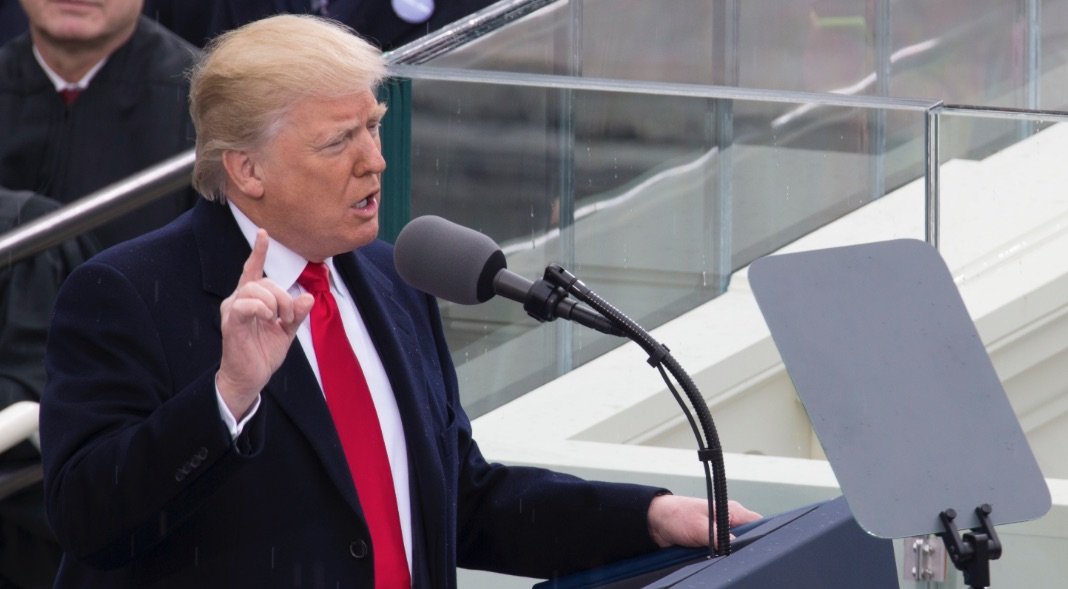The Top 6 Trump Administration Plagiarism Scandals (So Far)
The cake is a lie...
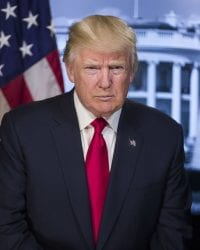 “It’s going to be a very busy four years for you isn’t it?”
“It’s going to be a very busy four years for you isn’t it?”
That’s a refrain I’ve been hearing a great deal lately. While I work hard to keep myself apolitical, there’s no doubt that the Trump campaign and now the Trump Presidency has seen more than its fair share of plagiarism scandals.
To highlight this point, inauguration day itself brought two stories about plagiarism and two more stories have come forward involving Trump appointees for various posts.
While the reason for this spike in plagiarism-related stories is unclear, keeping track of everything has been a dizzying task, even for me.
So, in order to help keep everything straight, I’ve created a list of the most important Trump Administration plagiarism scandals along with the basic facts and some brief analysis.
Bear in mind we will only be including plagiarisms alleged to have been committed by those directly involved with the Trump campaign or Presidency. This means the allegations against the Trump Institute are not on the list because the Trump Institute merely licensed his name.
Furthermore, we’ll be going over the stories in chronological order as it is the easiest way to follow the (complex) sequence of events.
1: Op-ed Written By President Trump’s Campaign (March 16, 2016)
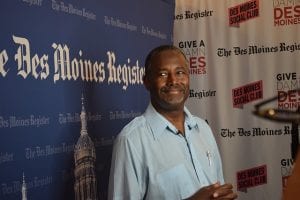 In March 2016 the Trump campaign, under President Trump’s name, published an op-ed in the Pacific Daily News, a newspaper in Guam. The op-ed, which looked at the United States’ Pacific territories, contained many of the same ideas and significant overlapping language with a February op-ed by former opponent Ben Carson.
In March 2016 the Trump campaign, under President Trump’s name, published an op-ed in the Pacific Daily News, a newspaper in Guam. The op-ed, which looked at the United States’ Pacific territories, contained many of the same ideas and significant overlapping language with a February op-ed by former opponent Ben Carson.
Ben Carson said he wasn’t bothered by the plagiarism and noted that it was most likely a case of his former staffers working for Trump. This makes a great deal of sense considering Carson had dropped out of the race weeks before the Trump op-ed was released.
Analysis: The plagiarism itself is pretty clear but the fact is there’s no reasonable expectation that President Trump wrote the op-ed himself. The explanation of the campaigns having the same staff members makes sense and is most likely the cause. This makes the plagiarism a bizarre case of “self-plagiarism” or “recycling” but it’s a case that clearly highlights why such reuse is a bad idea, especially when working for different employers.
Still, there’s no way that this op-ed should have been allowed to be published as it was. A quick analysis would have caught the problem and prevented an embarrassment/distraction. It also raised some serious questions about the campaign, questions that go unanswered.
2: Melania Trump’s Republican National Convention Speech (July 19. 2016)
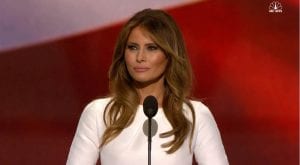 After securing the Republican nomination, President Trump’s wife, Melania Trump, took to the stage at the Republican National Convention to give a speech in support of her husband.
After securing the Republican nomination, President Trump’s wife, Melania Trump, took to the stage at the Republican National Convention to give a speech in support of her husband.
However, shortly after the speech aired, it was quickly revealed that a passage from the speech bore a strong resemblance to Michelle Obama’s speech at the Democratic National Convention in 2008.
Days later, Melania’s speechwriter came forward to apologize for the plagiarism. She also said that she submitted her resignation to the Trump family but it was rejected.
Analysis: I covered this story in my analysis above but it’s very clear that plagiarism took place in this case and the defense of it was not always appropriate, including the 93% different argument that Chris Christie took, which ignored the fact a sizable passage was copied near-verbatim.
In the end, it’s clear it was not Melania Trump who plagiarized. As with the op-ed, the speech was the work of a speechwriter but that defense is undercut by Melania’s claim that she wrote it with as little help as possible.
Once again, this one is a clear example of plagiarism but it’s not Melania’s plagiarism. Without her claim to have written as much of the speech as possible, it would have been an easily-dismissed case of a campaign speechwriter who wasn’t caught plagiarizing until after the speech was used.
3: Monica Crowley’s Book, Dissertation and Columns (Jan 7, 2017)
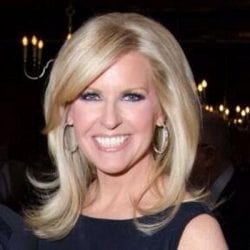 On January 7th, CNN reported that Monica Crowley, President Trump’s pick for senior director of strategic communications for the National Security Council, had plagiarized portions of her 2012 book.
On January 7th, CNN reported that Monica Crowley, President Trump’s pick for senior director of strategic communications for the National Security Council, had plagiarized portions of her 2012 book.
Investigation into Crowley’s work continued and days later it was reported that her 2000 dissertation contained significant duplicative text without citation. Days after that, CNN reported that “thousands” of words were copied in that dissertation.
HarperCollins, Crowley’s publisher, pulled the book from sale and Crowley decided not to take the position.
Analysis: Of all of the stories in this list, this is the most worrisome from a pure plagiarism standpoint. While Crowley herself was not particularly important to the Trump administration, it’s very clear that she has a serious plagiarism problem, especially when you look at her columns for the Washington Times, which also have passages copied without citation.
Crowley’s decision to step down did a great service for the administration, which had initially rushed to defend her. Given the strong defense she initially received, it’s no wonder I described it as the “death of the plagiarism scandal.”
4: Ben Carson’s Prepared HUD Testimony (January 12, 2017)
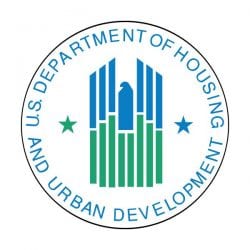 Ben Carson returns to this list but, this time, not as the person being plagiarized, but the one facing the accusations.
Ben Carson returns to this list but, this time, not as the person being plagiarized, but the one facing the accusations.
Carson, now nominated to head the Department of Housing and Urban Development, faced a hearing before the Senate Banking Committee. While Carson’s actual testimony was largely unscripted, his prepared remarks, submitted into the Congressional record, contained a passage lifted largely from a 2000 book.
The story was mostly a non-starter and was overshadowed by Crowley’s ongoing saga. Administration officials said that the passage was cited via hyperlink and footnotes but that, when it was submitted, the attribution “seems to have fallen off.”
Analysis: Carson never delivered the remarks and, by all accounts, never planned to. Whether the footnotes and links were lost is difficult to say without knowing more about how it was submitted (and whether the text was properly quoted in the paper) but similar issues have happened.
Still, someone did have the job of ensuring that the prepared remarks were submitted and cited correctly, something that didn’t happen. But, during the chaos of a Presidential transition, some leeway can be given, especially considering they weren’t the remarks Carson used.
At worst, this is another case of carelessness and possible plagiarism by staffers not being caught by those higher up in the administration.
5: The Inauguration Address (January 20, 2017)
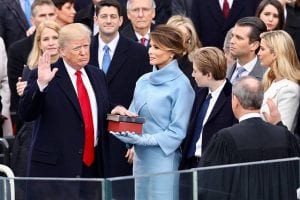 Shortly after President Trump took the oath of office, allegations began to fly that his inauguration speech containted plagiarism from a variety of sources including Bee Movie and Avatar.
Shortly after President Trump took the oath of office, allegations began to fly that his inauguration speech containted plagiarism from a variety of sources including Bee Movie and Avatar.
But while the story went viral, it was also completely untrue. While the quotes from President Trump’s speech were accurate, the quotes from the alleged sources were not.
That being said, there was one legitimate example of overlapping language: A line from President Trump’s speech the bore a resemblance to a line from Bane in The Dark Knight Rises.
Analysis: This one is a complete non-starter. The often-cited examples from Bee Movie and Avatar are fake and the Bane line, while unfortunate, is far from enough to be considered plagiarism.
Outside of being fodder for comedians, there’s not much of a story here.
6: The Inauguration Cake (January 20, 2017)
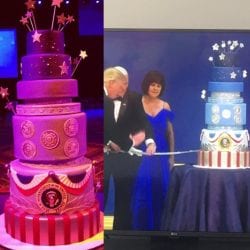 Finally, following the speech and the ceremony, President Trump went to enjoy the inauguration party. As part of that party he had a multi-tiered cake that Duff Goldman of Charm City Cakes quickly recognized as being identical to the one he created for President Obama’s 2013 inauguration.
Finally, following the speech and the ceremony, President Trump went to enjoy the inauguration party. As part of that party he had a multi-tiered cake that Duff Goldman of Charm City Cakes quickly recognized as being identical to the one he created for President Obama’s 2013 inauguration.
The baker behind President Trump’s cake, Tiffany MacIsaac of Buttercream Bakeshop, came forward and said that the cake was ordered exactly that way. According to MacIsaac, someone organizing the event came to them with a photograph of the cake and said they wanted it recreated.
So while the baker merely followed the orders of the campaign, there are still a slew of unanswered questions with this case, one of the biggest being “Why?”
Analysis: Though some have asked if it’s possible to plagiarize a cake, it’s pretty clear that, when the cake is as much a sculpture as these two are, it is possible. If you believe a cake to be a work of original art, then it can be plagiarized.
But that still leaves a lot of serious questions. Did the baker have a responsibility to refuse the job? Why did the campaign seek to recreate the cake from its predecessor? What are the ethics in asking for a duplicative cake? Was this intended to be an homage? How would one cite a cake if they wanted to?
Honestly, these aren’t questions I have good answers for. My area of expertise involves the written word so discussing the boundaries of cake plagiarism is outside of my comfort zone.
While I feel certain an ethical infraction was made, I struggle to say who had the responsibility and how severe it actually is.
Bottom Line
The question I keep getting asked is “Why has President Trump’s campaign and presidency faced so many allegations of plagiarism?”
I don’t have a good answer to that either.
While it’s possible he has faced greater scrutiny, it stands to reason that all candidates would have faced similar scrutiny, especially from their opponents.
Instead, President Trump has made it a major selling point of his campaign and now his Presidency that he is not like other politicians. He is, by his own admission, less polished and did not run a traditional campaign nor will he run a traditional Presidency.
However, for other candidates, part of that polish and that grooming is addressing plagiarism issues behind the scenes. It’s likely other candidates saw as many, if not more, plagiarism issues but they were largely caught by the campaigns before they became public.
In the end, one of the consequences of a less-polished President may be more cases of plagiarism among his staff.
If that’s the case, then this certainly will be a busy four years for me.
Want to Reuse or Republish this Content?
If you want to feature this article in your site, classroom or elsewhere, just let us know! We usually grant permission within 24 hours.
